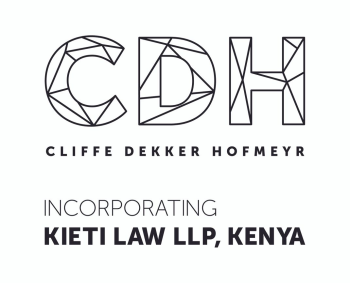The South African Revenue Service (SARS) has issued a number of rulings regarding the conversion of debt to equity. On May 31 2016 SARS issued Binding Private Ruling 236, which again dealt with the matter.
The ruling involved a restructure of a group of companies. As part of the restructure, one company in the group (Company A, a tax resident in South Africa) acquired a loan account in its wholly-owned subsidiary company (Company B, a tax resident in another country).
The restructure worked as follows:
- A company in the group (the applicant) sold shares to Company B. The price was left owing on a loan account.
- The applicant distributed the loan to its holding company as a dividend in specie (ie, satisfied in assets rather than cash).
- The holding company subscribed for further ordinary shares in the capital of Company A for a subscription price equal to the face value of the loan. The obligation of the holding company to pay the subscription price to Company A under the subscription agreement was discharged by the transfer of the loan to Company A. So after the third step, Company A held the loan in its wholly-owned subsidiary, Company B.
- Company A in turn subscribed for further ordinary shares in the capital of Company B for a subscription price equal to the face value of the loan. The obligation of Company A to pay the subscription price to Company B under that subscription agreement was discharged by way of set-off against the loan, resulting in the loan being extinguished.
The last step in the restructure was of interest in this case. Regarding that step, SARS ruled as follows:
- Under Paragraph 20 of the Eighth Schedule of the Income Tax Act (58/1962), Company A acquired further shares in Company B for an expenditure equal to the subscription price of the shares. In other words, for capital gains tax purposes, the base cost of the further shares in Company B would be an amount equal to the subscription price – that is, an amount equal to the face value of the loan.
- The offset of the loan against Company A's obligation to pay the subscription price did not result in any capital gain in Company A.
As Company B was not a tax resident in South Africa, it was unnecessary to consider the South African tax effects of the restructure for it. Had it been a South African tax resident, it would have been interesting to see how SARS would have ruled on the tax implications of the extinction of the loan. The reduction of a debt for inadequate consideration can in certain cases have negative tax consequences for South African tax resident debtors.
SARS has never explicitly stated whether those debt reduction rules would legitimately be avoided if:
- a creditor subscribed for shares in a debtor company for a subscription price equal to the debt; and
- the obligation to pay the subscription price were set off against the obligation to repay the debt.
However, in a draft interpretation note, SARS has stated that the reduction of debt through the issue of shares should not trigger adverse tax consequences. It appears that this ruling is a further acceptance by SARS that the capitalisation of a loan account by subscription and set-off – as opposed to a settlement for cash – should not have a negative tax effect.
A SARS ruling only applies to the parties that requested the ruling. However, SARS's rulings can give taxpayers an idea of its view on the matters addressed.
For further information on this topic please contact Ben Strauss at Cliffe Dekker Hofmeyr by telephone (+27 21 481 6300) or email ([email protected]). The Cliffe Dekker Hofmeyr website can be accessed at www.cliffedekkerhofmeyr.com
This article was first published by the International Law Office, a premium online legal update service for major companies and law firms worldwide. Register for a free subscription.



